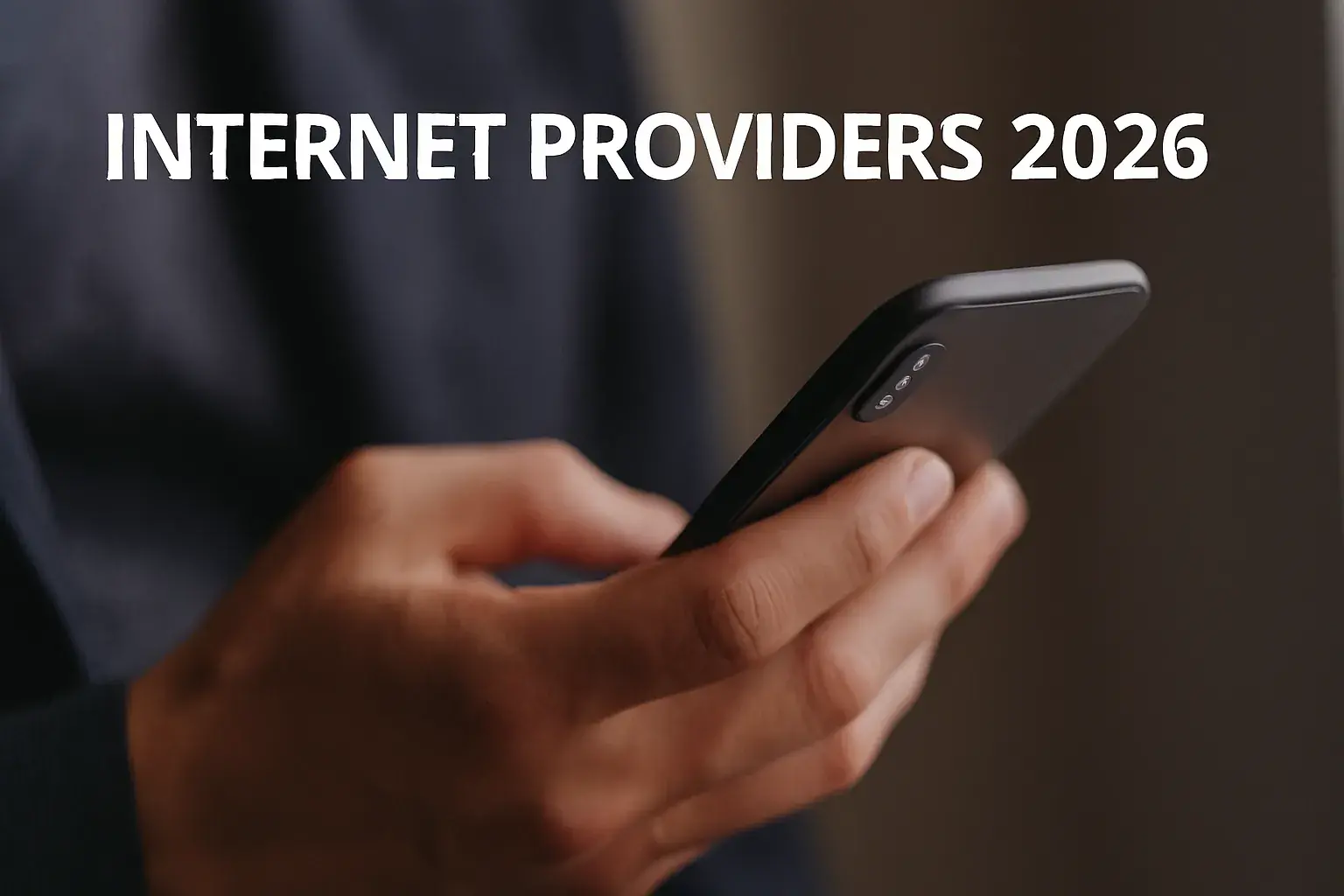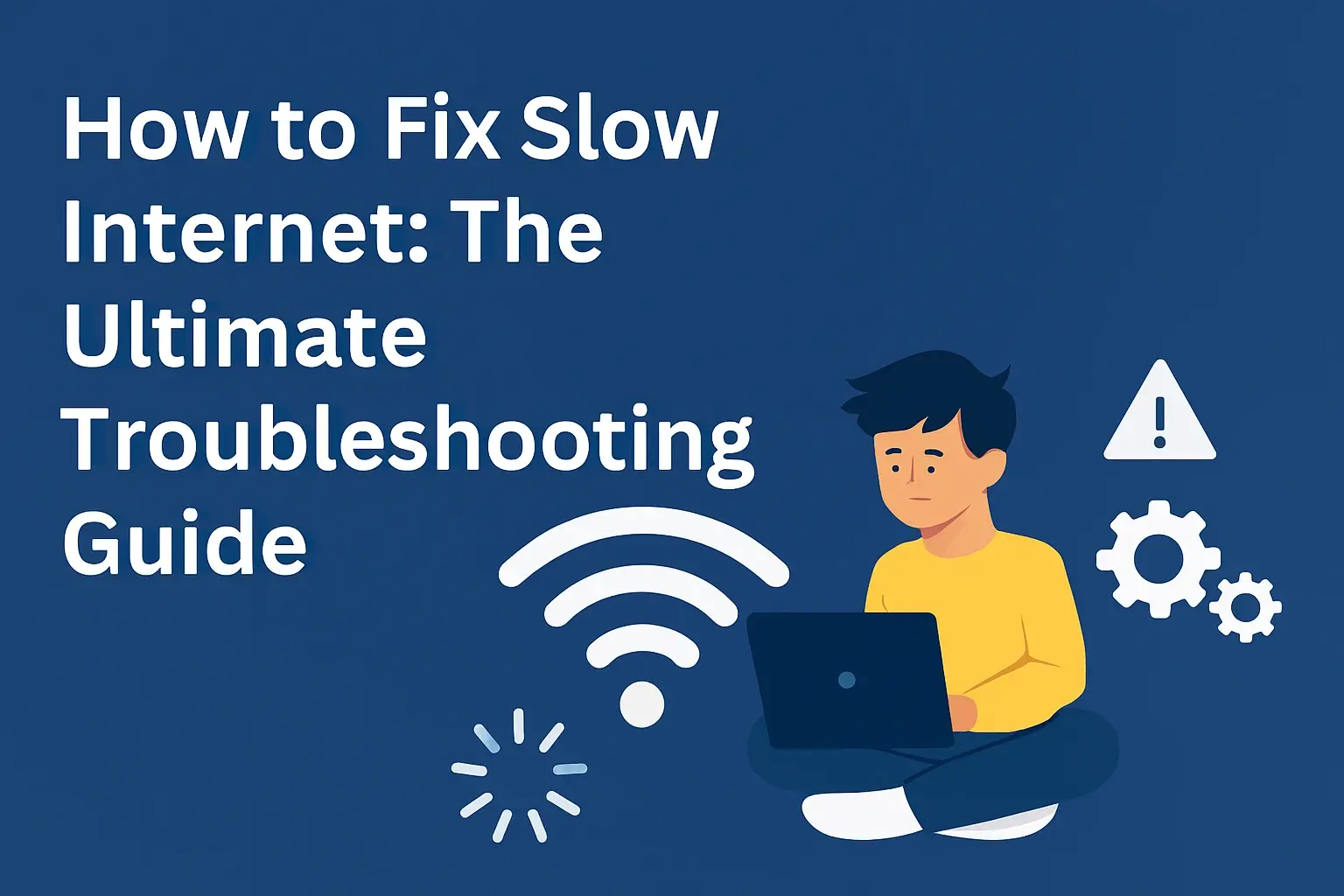What carrier owns T-Mobile?

Understanding the ownership structure of major telecommunications companies is crucial for consumers and industry observers alike. This article directly answers the question: What carrier owns T-Mobile? We delve into the current ownership, its history, and what this means for the future of mobile services in the United States, providing a comprehensive overview that goes beyond a simple answer.
Understanding T-Mobile's Ownership Landscape
The question "What carrier owns T-Mobile?" has a clear and definitive answer in the current market: Deutsche Telekom (DT). This German telecommunications giant holds a controlling stake in T-Mobile US, making it the primary owner. While T-Mobile operates as a publicly traded company on the NASDAQ stock exchange (TMUS), Deutsche Telekom's significant shareholding dictates its strategic direction and long-term vision. This ownership structure is not a recent development but rather the culmination of a long-standing relationship and strategic investments by DT. Understanding this relationship is key to grasping T-Mobile's operational independence, its market strategy, and its competitive positioning within the U.S. telecommunications sector.
For many years, T-Mobile US was a subsidiary of Deutsche Telekom. However, its status evolved significantly, particularly with the landmark merger with Sprint. This merger, completed in 2020, was a pivotal moment that reshaped the U.S. mobile landscape and solidified Deutsche Telekom's influence. While T-Mobile US is now a publicly traded entity, Deutsche Telekom remains the largest shareholder, wielding considerable influence over the company's governance and strategic decisions. This means that while T-Mobile US functions with a degree of autonomy, its ultimate parent company and controlling shareholder is Deutsche Telekom.
The intricacies of corporate ownership can sometimes be confusing, especially with publicly traded companies where multiple entities and individuals hold shares. However, when asking about the "owner" in terms of controlling interest and strategic direction, Deutsche Telekom is the unambiguous answer. This relationship has a tangible impact on T-Mobile's operations, from its network investments and service offerings to its marketing strategies and competitive stance against rivals like Verizon and AT&T. The backing and strategic guidance from a global telecommunications powerhouse like Deutsche Telekom provide T-Mobile with significant resources and a robust foundation for growth and innovation.
It's important to differentiate between owning a majority stake and being the sole owner. Deutsche Telekom does not own 100% of T-Mobile US. The company is publicly traded, meaning that a portion of its shares are owned by individual investors, institutional investors, and other entities. However, Deutsche Telekom's ownership percentage is substantial enough to grant it majority voting rights and control over the company's board of directors. This level of control ensures that DT's strategic objectives are paramount in T-Mobile's decision-making processes. This structure allows T-Mobile to operate with agility in the U.S. market while benefiting from the financial strength and global expertise of its parent company.
The history of T-Mobile's ownership is a narrative of strategic consolidation and growth. Deutsche Telekom's initial investment in the U.S. market was a bold move, and its continued commitment, especially through the acquisition of controlling stakes and subsequent mergers, highlights its long-term strategy for global expansion. The acquisition of Sprint, in particular, was a transformative event that created a stronger, more competitive T-Mobile, better equipped to challenge the established duopoly of Verizon and AT&T. This strategic maneuver was heavily influenced and supported by Deutsche Telekom, underscoring its role as the ultimate owner and driving force behind T-Mobile US's evolution.
The Evolution of T-Mobile US Ownership
To fully appreciate the current ownership structure, it's beneficial to trace T-Mobile US's journey. Deutsche Telekom first entered the U.S. market in 1999 by acquiring VoiceStream Wireless. This venture was later rebranded as T-Mobile USA. For years, DT maintained a majority stake, but the company faced significant challenges in competing with AT&T and Verizon. The landscape shifted dramatically with the proposed acquisition of T-Mobile USA by AT&T in 2011, a deal that was ultimately blocked by U.S. antitrust regulators.
The most significant turning point in T-Mobile US's ownership and market position came with the merger with Sprint. Deutsche Telekom was a key architect and proponent of this merger, seeing it as a strategic imperative to create a stronger challenger in the U.S. market. The merger, which closed on April 1, 2020, combined the strengths of both companies, creating a more formidable entity. Following the merger, Deutsche Telekom's ownership stake in the combined T-Mobile US increased significantly. While the exact percentage fluctuates due to stock performance and market activity, DT has consistently held a controlling interest, making it the de facto owner.
This strategic consolidation was not just about increasing market share; it was also about creating a more robust network and a more competitive offering for consumers. The integration of Sprint's assets, including its spectrum holdings and customer base, with T-Mobile's existing infrastructure and brand, was a monumental undertaking. Deutsche Telekom's financial backing and strategic oversight were instrumental in navigating this complex process. The result is a T-Mobile US that is a leading player in the U.S. wireless industry, with Deutsche Telekom firmly in the driver's seat as its principal owner.
The decision to pursue the Sprint merger was a testament to Deutsche Telekom's belief in the potential of the U.S. market and its commitment to T-Mobile US. It was a high-stakes gamble that paid off, transforming T-Mobile from a distant third player into a genuine competitor capable of challenging the incumbent leaders. The ongoing integration and optimization of the combined network and operations continue to be guided by DT's strategic vision, reinforcing its role as the controlling owner.
Is T-Mobile a U.S. Company?
While T-Mobile US is a publicly traded company listed on the NASDAQ and operates extensively within the United States, its controlling ownership lies with Deutsche Telekom, a German company. Therefore, it is more accurate to describe T-Mobile US as a U.S.-based operating subsidiary of a foreign parent company, rather than a purely U.S.-owned entity. This distinction is important for understanding its corporate governance, financial reporting, and strategic direction. The majority of its employees, operations, and customer base are in the U.S., but the ultimate decision-making power and strategic control reside with its majority shareholder, Deutsche Telekom.
The Transformative Acquisition of Sprint
The merger between T-Mobile US and Sprint, finalized on April 1, 2020, stands as one of the most significant events in the history of the U.S. telecommunications industry. This colossal deal not only reshaped the competitive landscape but also fundamentally altered the ownership structure and strategic trajectory of T-Mobile US. Deutsche Telekom played a pivotal role in orchestrating and championing this merger, viewing it as a critical step to create a more robust and competitive third national carrier.
Before the merger, T-Mobile and Sprint were the third and fourth largest mobile network operators in the U.S., respectively. Both companies faced challenges in competing with the dominant players, Verizon and AT&T, particularly in terms of network scale and spectrum holdings. The U.S. market had long been dominated by these two giants, leaving limited room for smaller players to innovate and expand effectively. Recognizing this dynamic, Deutsche Telekom saw an opportunity to combine the strengths of T-Mobile and Sprint to create a more formidable entity.
The rationale behind the merger was multifaceted. From a consumer perspective, the promise was increased competition, better services, and potentially more competitive pricing. For the companies, it meant the pooling of valuable spectrum licenses, the consolidation of network infrastructure, and the creation of a larger customer base. This consolidation was seen as essential for T-Mobile to effectively compete in the rollout of advanced technologies like 5G, which require significant investment in spectrum and infrastructure.
Deutsche Telekom's commitment to the merger was unwavering. The company acted as a crucial facilitator, providing financial support and strategic guidance throughout the complex negotiation and regulatory approval process. The deal required extensive review from antitrust regulators, who were concerned about reducing the number of major wireless providers from four to three. However, after a lengthy period of scrutiny and concessions, the merger was eventually approved, paving the way for the creation of the "new" T-Mobile.
The immediate aftermath of the merger saw a significant increase in Deutsche Telekom's ownership stake in the combined entity. While the precise percentage has varied due to stock market fluctuations, DT emerged as the undisputed majority shareholder. This strengthened its control and influence over T-Mobile US's operations and strategic decisions. The integration of Sprint's network, customers, and employees into the T-Mobile ecosystem was a massive undertaking, involving the decommissioning of Sprint's network and the migration of its customers to T-Mobile's platform. This complex process has been ongoing, with T-Mobile US making substantial progress in realizing the synergies envisioned by the merger.
The acquisition of Sprint was not merely a business transaction; it was a strategic masterstroke by Deutsche Telekom. It transformed T-Mobile US from a significant player into a market leader, capable of challenging the established giants on a more equal footing. The combined entity has been aggressively expanding its 5G network, leveraging the vast spectrum assets inherited from both companies. This strategic move has positioned T-Mobile US for continued growth and innovation in the coming years, all under the watchful eye and strategic direction of its majority owner, Deutsche Telekom.
Key Aspects of the Sprint Merger
The merger of T-Mobile and Sprint was a complex undertaking with several key aspects that are crucial to understanding its impact:
- Regulatory Approval: The deal faced intense scrutiny from the U.S. Department of Justice and the Federal Communications Commission (FCC). Concerns about market concentration and potential harm to consumers were paramount. Ultimately, the merger was approved with certain conditions, including the divestiture of some spectrum assets to Dish Network to ensure continued competition.
- Network Integration: A primary goal was to combine the complementary network assets of both companies. T-Mobile brought its strong mid-band spectrum for 5G, while Sprint had significant low-band spectrum for coverage and mid-band assets. The integration aimed to create a more robust and expansive nationwide 5G network.
- Customer Migration: A significant operational challenge was migrating Sprint's millions of customers to the T-Mobile network. This involved transitioning them to T-Mobile's systems, plans, and devices, a process that required extensive planning and execution.
- Synergies and Cost Savings: The merger was projected to generate substantial synergies, including cost savings from network consolidation, operational efficiencies, and reduced overhead. These savings were intended to fuel further investment in network upgrades and competitive service offerings.
- Strengthened Competitive Position: The combined entity emerged as a stronger competitor to Verizon and AT&T. This consolidation was seen as vital for the U.S. market to have a robust third national carrier capable of driving innovation and competition, especially in the rollout of 5G technology.
The successful completion of the Sprint merger was a testament to Deutsche Telekom's strategic vision and its willingness to invest heavily in the U.S. market. It solidified T-Mobile's position as a major force, directly impacting its ability to compete and innovate in the years to come. The integration process, while challenging, has largely been successful, leading to a more streamlined and powerful T-Mobile US.
Who is Deutsche Telekom?
Deutsche Telekom AG (DT) is a global telecommunications company headquartered in Bonn, Germany. It is one of the world's leading integrated telecommunications providers, operating in numerous countries across Europe and the Americas. The company's extensive portfolio includes fixed-network, mobile communications, internet, and digital television services for both private and business customers. Its primary subsidiary in the United States is T-Mobile US, where it holds a controlling stake.
Founded in 1995 as a spin-off from the former state-owned Deutsche Bundespost (German Federal Post), Deutsche Telekom has a rich history and a significant presence in the European market. Its operations extend beyond Germany, with substantial networks and customer bases in countries like Poland, Austria, and the Czech Republic. In the United States, its strategic investment in T-Mobile US has been a cornerstone of its international growth strategy.
Deutsche Telekom's business model is characterized by a dual focus: maintaining its strong position in its home European markets while aggressively pursuing growth opportunities in key international markets, most notably the United States. The acquisition and subsequent strategic development of T-Mobile US represent the company's most significant international venture. DT's involvement in T-Mobile US is not merely passive; it actively participates in the strategic decision-making, network development, and financial planning of its U.S. subsidiary.
The financial strength of Deutsche Telekom provides T-Mobile US with a significant advantage. As a major global player, DT can leverage its financial resources to support T-Mobile's ambitious network expansion plans, particularly in the realm of 5G deployment. This backing allows T-Mobile to invest heavily in spectrum, infrastructure, and technology, enabling it to compete effectively with its larger U.S. rivals. The synergy between Deutsche Telekom's global expertise and T-Mobile's U.S. market focus has been a key driver of T-Mobile's success.
Deutsche Telekom's corporate structure is complex, with various subsidiaries and business units catering to different market segments and geographical regions. However, T-Mobile US stands out as its most prominent international asset. The company's commitment to T-Mobile US is evident in its consistent investment and strategic support, which have been instrumental in transforming T-Mobile into a leading U.S. wireless carrier. This deep integration and ownership structure mean that the strategic direction of T-Mobile US is intrinsically linked to the overarching goals and vision of Deutsche Telekom.
Deutsche Telekom's Global Footprint
Deutsche Telekom's influence extends far beyond the United States. The company operates under various brands across Europe, providing a comprehensive suite of telecommunications services. Some of its key European markets include:
- Germany: As its home market, Germany remains Deutsche Telekom's largest and most significant operation. It offers a full range of services, from mobile and broadband to enterprise solutions.
- Poland: Through its subsidiary T-Mobile Polska, DT is a major player in the Polish telecommunications market.
- Austria: Magenta Telekom (formerly T-Mobile Austria) is another significant European operation, offering converged mobile and fixed-line services.
- Central and Eastern Europe: DT has a presence in several other Central and Eastern European countries, including the Czech Republic and Slovakia, through its subsidiaries.
This extensive European presence, combined with its controlling stake in T-Mobile US, positions Deutsche Telekom as a truly global telecommunications powerhouse. The company's strategy involves leveraging its expertise and resources across these diverse markets, fostering innovation and driving growth.
The company's commitment to innovation is also a defining characteristic. Deutsche Telekom is actively involved in research and development, particularly in areas such as 5G, IoT (Internet of Things), and cloud technologies. This forward-looking approach ensures that its subsidiaries, including T-Mobile US, remain at the forefront of technological advancements. The strategic alignment between DT and T-Mobile US allows for the efficient transfer of knowledge, technology, and best practices, benefiting both entities and ultimately, the end consumer.
Impact of Ownership on Consumers
The ownership of T-Mobile US by Deutsche Telekom has several tangible impacts on consumers, influencing the services they receive, the prices they pay, and the innovation they experience. Understanding this relationship helps consumers make informed decisions about their mobile service providers.
One of the most significant impacts is the financial backing and strategic direction provided by Deutsche Telekom. This allows T-Mobile US to invest heavily in its network infrastructure, particularly in the rapid deployment of 5G technology. Consumers benefit from this investment through improved network coverage, faster data speeds, and enhanced reliability. The merger with Sprint, heavily supported by DT, was a key catalyst for this network expansion, enabling T-Mobile to offer a more competitive and robust 5G experience across a wider geographical area.
Deutsche Telekom's influence also shapes T-Mobile's competitive strategy. The company has a history of challenging the status quo in the U.S. market, often by offering more customer-friendly plans and features. This aggressive approach, encouraged by DT's strategic vision, has historically driven innovation in areas like unlimited data plans, contract buyouts, and international roaming benefits. Consumers have benefited from this competitive pressure, which has pushed other carriers to improve their own offerings and pricing.
The financial stability provided by a large, global parent company like Deutsche Telekom also contributes to T-Mobile's ability to offer competitive pricing. While T-Mobile operates as a publicly traded company with its own financial goals, the backing of DT provides a cushion and the resources to sustain competitive pricing strategies even during periods of intense market competition. This can translate into more affordable plans and better value for consumers, especially when compared to the pricing strategies of its larger, more established rivals.
Furthermore, Deutsche Telekom's global presence and expertise can lead to the introduction of international features and benefits for T-Mobile US customers. While T-Mobile already offers international roaming benefits, the broader experience and network relationships of DT can potentially lead to expanded international services and partnerships in the future. This can be particularly valuable for consumers who travel frequently or have international communication needs.
However, it's also important to acknowledge that T-Mobile US, as a subsidiary of a foreign parent, operates within a specific regulatory framework. While it adheres to U.S. regulations, the ultimate strategic decisions are influenced by Deutsche Telekom's global objectives. This can sometimes lead to a focus on specific market segments or technologies that align with DT's broader portfolio. Nevertheless, the overall impact on consumers has largely been positive, characterized by increased competition, network improvements, and innovative service offerings.
The continued investment in 5G is a prime example of how this ownership structure benefits consumers. Deutsche Telekom's commitment to 5G deployment has enabled T-Mobile US to build out one of the most extensive 5G networks in the United States. This translates into tangible benefits for users, including faster download and upload speeds, lower latency for real-time applications like gaming and video conferencing, and the potential for new, innovative services that leverage the capabilities of 5G technology. Consumers are increasingly relying on these advanced network capabilities for both personal and professional use, and T-Mobile's aggressive 5G rollout, fueled by DT's backing, is a direct response to this growing demand.
The competitive dynamic in the U.S. wireless market has been significantly altered by the presence of a strong T-Mobile US, a position fortified by Deutsche Telekom's ownership. This has forced competitors to adapt, leading to a more dynamic and consumer-centric market overall. The ongoing evolution of T-Mobile US, driven by its parent company's strategic vision, suggests that consumers can expect continued innovation and competitive offerings in the years to come.
Consumer Benefits Summary
Here's a quick overview of how Deutsche Telekom's ownership benefits T-Mobile US consumers:
- Aggressive Network Investment: Leading to faster 5G speeds and broader coverage.
- Competitive Pricing: Driven by a strategy to challenge market leaders.
- Innovative Plans and Features: Such as unlimited data and international benefits.
- Increased Competition: Pushing rivals to improve their own offerings.
- Financial Stability: Ensuring consistent service and investment.
The strategic decisions made by Deutsche Telekom, filtered through T-Mobile US's management, ultimately aim to create a strong, competitive, and innovative mobile operator. For consumers, this translates into more choices, better services, and a more dynamic marketplace. The ongoing development and integration following the Sprint merger continue to unlock further benefits, promising an even more robust T-Mobile experience for its customers.
T-Mobile vs. Competitors: A 2025 Snapshot
As of 2025, T-Mobile US, under the controlling ownership of Deutsche Telekom, stands as a formidable competitor in the U.S. telecommunications market, challenging the long-standing dominance of Verizon and AT&T. The landscape has been significantly reshaped by the T-Mobile-Sprint merger, which created a more robust entity with extensive spectrum holdings and a rapidly expanding 5G network. This section provides a comparative look at T-Mobile's position relative to its primary rivals, highlighting key areas of strength and differentiation.
Network Performance and 5G Leadership: T-Mobile has consistently positioned itself as a leader in 5G deployment. Leveraging the combined spectrum assets from the Sprint merger, T-Mobile has built out a significant 5G network, often cited for its speed and broad coverage, particularly in the mid-band spectrum which offers a balance of speed and reach. Independent network testing firms, such as Ookla and umlaut, frequently show T-Mobile leading in 5G availability and often in 5G speed metrics in many areas. Verizon, while also investing heavily in 5G, has historically focused more on millimeter-wave (mmWave) for ultra-high speeds in dense urban areas, which offers less coverage. AT&T has been steadily expanding its 5G network, utilizing a mix of spectrum bands. In 2025, T-Mobile's mid-band 5G advantage continues to be a key differentiator, offering a superior 5G experience to a larger portion of its customer base.
Pricing and Value Proposition: T-Mobile has historically differentiated itself by offering aggressive pricing and a strong value proposition, often centered around unlimited data plans with fewer restrictions and attractive perks. Deutsche Telekom's strategic push for market share has encouraged T-Mobile to maintain a competitive pricing structure. While all major carriers offer various unlimited plans, T-Mobile's "Un-carrier" ethos, which aims to eliminate traditional pain points like contracts and hidden fees, continues to resonate with consumers. Verizon and AT&T, while offering competitive plans, often position themselves as premium providers with a focus on network reliability, sometimes at a higher price point. T-Mobile's strategy, backed by DT, has been to offer compelling value that appeals to a broad range of consumers.
Customer Service and Brand Perception: T-Mobile's "Un-carrier" branding has cultivated a perception of being more customer-friendly and innovative. While customer service experiences can vary, the company's focus on transparency and eliminating common frustrations has helped build a loyal customer base. The integration of Sprint customers has been a major undertaking, and ongoing efforts are focused on ensuring a seamless experience for all subscribers. Verizon and AT&T also have strong brand recognition, often associated with reliability and extensive coverage, but T-Mobile has successfully carved out a niche as the challenger brand that prioritizes customer experience and value.
Market Share and Growth: Following the Sprint merger, T-Mobile US solidified its position as the second-largest wireless carrier in the United States by subscriber count, surpassing AT&T. This growth trajectory, fueled by the merger and continued customer acquisition, demonstrates the success of Deutsche Telekom's strategic investment. While Verizon remains the largest carrier, T-Mobile's continued growth and network expansion pose a significant challenge. The ability to leverage Deutsche Telekom's resources allows T-Mobile to invest in network upgrades and marketing campaigns that sustain its growth momentum.
Innovation and Future Technologies: T-Mobile, with Deutsche Telekom's backing, is actively involved in exploring and deploying next-generation technologies beyond 5G, including advancements in fixed wireless access (FWA) for home internet, private networks for enterprise clients, and the integration of new services enabled by 5G. The company's focus on innovation is crucial for maintaining its competitive edge. Verizon and AT&T are also investing in these areas, but T-Mobile's agile approach and strong 5G foundation position it well for future technological shifts.
Comparative Table: T-Mobile vs. Competitors (2025)
| Feature | T-Mobile US | Verizon | AT&T |
|---|---|---|---|
| Ownership | Deutsche Telekom (Majority Stake) | Independent Publicly Traded Company | Independent Publicly Traded Company |
| 5G Network (Mid-band Focus) | Leader in availability and speed | Strong, but often prioritizes mmWave for speed | Expanding steadily across various spectrum bands |
| Pricing Strategy | Aggressive, value-oriented, "Un-carrier" | Premium, reliability-focused | Competitive, with various plan tiers |
| Market Position (Subscribers) | #2 Largest Carrier | #1 Largest Carrier | #3 Largest Carrier |
| Brand Perception | Challenger, customer-centric, innovative | Reliable, premium network | Established, broad services |
In 2025, the competition among these three giants remains fierce. T-Mobile US, empowered by Deutsche Telekom's strategic vision and financial backing, continues to push the boundaries of network performance and customer value, solidifying its place as a leading force in the U.S. mobile market.
The Future Outlook for T-Mobile
The future of T-Mobile US, under the controlling ownership of Deutsche Telekom, appears robust and strategically aligned with the evolving telecommunications landscape. As the second-largest wireless carrier in the United States, T-Mobile is well-positioned to capitalize on emerging trends and technologies, driven by its substantial network investments and a clear strategic vision inherited from its parent company.
One of the primary drivers of T-Mobile's future success will be its continued leadership in 5G. Deutsche Telekom's commitment to 5G deployment has already established T-Mobile with a significant advantage in mid-band spectrum, offering a compelling blend of speed and coverage. In the coming years, T-Mobile is expected to further expand its 5G network, enhancing its capabilities for consumers and businesses alike. This includes not only faster mobile broadband but also the enablement of new applications and services, such as enhanced augmented reality (AR), virtual reality (VR), and more sophisticated IoT solutions.
Fixed Wireless Access (FWA) is another area where T-Mobile is poised for significant growth. Leveraging its extensive 5G network, T-Mobile has become a major provider of home internet services, offering a competitive alternative to traditional cable and fiber providers. Deutsche Telekom's global experience in fixed-line services can provide valuable insights and support for T-Mobile's FWA expansion. As more consumers seek flexible and high-speed internet options, T-Mobile's FWA offering is expected to be a key growth engine.
The enterprise market represents another significant opportunity. T-Mobile is increasingly focusing on providing advanced connectivity solutions for businesses, including private 5G networks, IoT platforms, and tailored enterprise mobility solutions. Deutsche Telekom's extensive experience in serving business clients across Europe provides a strong foundation for T-Mobile to expand its enterprise offerings in the U.S. The ability to offer customized, high-performance private networks will be crucial for businesses looking to leverage the full potential of 5G for operational efficiency and innovation.
Deutsche Telekom's strategic guidance will continue to play a vital role in T-Mobile's long-term development. The parent company's focus on innovation, efficiency, and customer value is deeply embedded in T-Mobile's operational philosophy. This alignment ensures that T-Mobile remains agile and competitive, adapting to market changes and technological advancements. The financial strength and global expertise of Deutsche Telekom provide T-Mobile with the resources and strategic support necessary to pursue ambitious growth initiatives and overcome market challenges.
Furthermore, T-Mobile is likely to continue its strategy of challenging the established players through competitive pricing and customer-centric offerings. The "Un-carrier" approach, which has been instrumental in T-Mobile's growth, is expected to remain a core element of its market strategy. By focusing on transparency, value, and eliminating customer pain points, T-Mobile aims to attract and retain subscribers, further solidifying its position as a leading national carrier.
The integration of technologies and services, potentially including advancements in areas like edge computing and network slicing, will also be critical. Deutsche Telekom's ongoing research and development efforts in these cutting-edge fields can be leveraged by T-Mobile US to offer differentiated services and maintain a technological edge. The company's ability to innovate and adapt will be key to its sustained success in the dynamic U.S. telecommunications market.
In conclusion, the future outlook for T-Mobile US is exceptionally bright. Fueled by Deutsche Telekom's strategic vision, robust network investments, and a continued commitment to customer value, T-Mobile is well-equipped to navigate the complexities of the modern telecommunications industry. Its leadership in 5G, expansion in FWA, and growing presence in the enterprise sector, all supported by its controlling owner, position it for continued growth and innovation for years to come.
Key Future Growth Areas
- 5G Network Expansion: Continued build-out and optimization for enhanced speed, coverage, and new applications.
- Fixed Wireless Access (FWA): Growing the home internet subscriber base with competitive offerings.
- Enterprise Solutions: Developing and deploying private 5G networks and IoT services for businesses.
- Technological Innovation: Exploring and integrating advanced technologies like edge computing and network slicing.
- Customer Value Focus: Maintaining the "Un-carrier" ethos to attract and retain subscribers.
Deutsche Telekom's strategic stewardship ensures that T-Mobile US remains a dynamic and forward-thinking entity, poised to shape the future of mobile and broadband connectivity in the United States.





